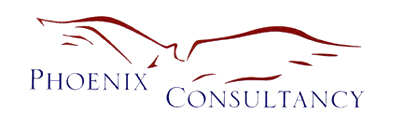Brand Protection & Counterfeit Goods
The Growth in worldwide communication, technology and trade has created a global market place for counterfeit goods. The development of communications and technology such as the internet has allowed those involved in counterfeiting in source countries to market their goods globally, as well as providing opportunities to launder profits.
Due to the global economic downturn, counterfeit goods are everywhere. Fake Porsches and Ferraris zoom along the streets of Bangkok. A German bank has discovered an ersatz gold ingot made of tungsten in its reserves, according to a German television channel investigating persistent reports that many of the world’s financial institutions have been similarly hoodwinked. NASA, America’s space agency, has even bought suspect materials.
Several factors have contributed to the growth of counterfeiting in recent years. The shift of much of the world’s manufacturing to countries with poor protection of intellectual property has provided both the technology and the opportunity to make knock-offs. The internet in general and e-commerce sites like eBay in particular, have made it easier to distribute counterfeit goods.
Businesses, which feel the revenues lost to counterfeiters all the more acutely in a downturn, are making an even greater effort to root out impostors.
The technology used to counter pirates is also becoming more sophisticated. Holograms are a cheap way to distinguish real items from fakes, although counterfeiters are getting better at copying them. Special inks, watermarking, and other “covert” technologies (meaning those invisible to the naked eye) are becoming more popular as a result. Many “brand protection” firms have also started to peddle radio-frequency identification (RFID) technology to help companies track shipments. This allows firms to tag boxes and crates with chips which send out signals identifying them as authentic.
The most foolproof technique for identifying genuine goods involves incorporating materials with special genetic markers into the packaging or product itself. Firms or officials can then literally check an item’s DNA to ensure that it is real. This is more expensive than other anti-counterfeiting measures, but companies with very valuable wares, such as the grandest wineries, are splurging on it.
We at Phoenix pride ourselves on the global resources we have developed which has assisted many companies over the years.
There are several ways for our team to investigate counterfeiting or illegal copying of products for example:
- Undercover Investigation
- Ghost Customer/Test Purchase
- Surveillance
- Tracking
- Intelligence gathering
- Utilising global and domestic contacts
Sometimes it may be sufficient for a Private Investigation team to track down and identify the person selling the counterfeit goods, although generally a more in-depth approach is needed and it is more favourable for our personnel to trace back to who is either producing the counterfeit goods, or in the case of offshore connections, who is importing or exporting the products. The investigation can normally be completed by a combination of surveillance, intelligence investigations and also undercover investigations.
Counterfeiting is a major challenge facing an increasing number of companies and it is a major threat to business and consumers throughout the world. Counterfeiters and those who sell the forgeries are constantly evolving in order to produce a more accurate produce, increase financial gain and also to avoid detection. Combating this form of crime is vital in order to protect the product that is being copied, and also the company that is making, distributing or selling it.
If you are being affected by the sale or supply of counterfeit goods then call Phoenix Consultancy and one of our detectives will be happy to discuss your situation in complete confidence either over the phone or we can arrange a meeting where we would suggest a solution tailored to your needs.
